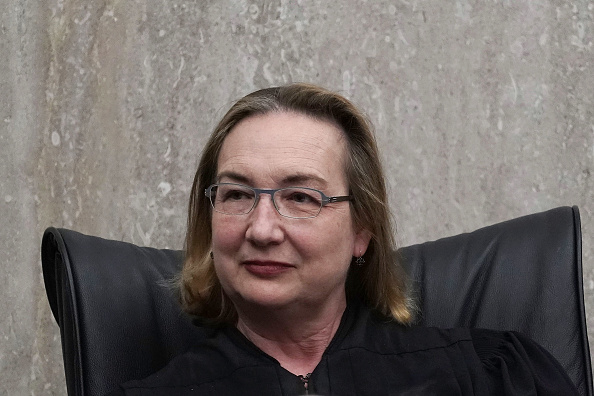Law Firms
Judicial Scrutiny Over Presidential Orders: A Modern-Day Red Scare?
April 24, 2025, 10:57 am CDT
Former Chief U.S. District Judge Beryl A. Howell presiding over an investiture ceremony in Washington, D.C., April 2018. (Photo by Alex Wong/Getty Images)
In a recent court hearing, two federal judges challenged the U.S. government’s authority to impose executive orders targeting prominent law firms Perkins Coie and Wilmer Cutler Pickering Hale and Dorr. These orders threaten to revoke security clearances and limit access to government facilities for lawyers associated with these firms.
Judicial Concerns Over Executive Actions
During the proceedings, U.S. District Judge Beryl A. Howell raised a significant concern, questioning whether the government’s actions could be reminiscent of the McCarthy era. This remark followed an analysis from a former Department of Defense official who criticized the sweeping nature of the security clearance suspensions, suggesting they evoke a discredited past of political persecution.
Arguments Against Presidential Orders
Representing Perkins Coie, attorney Dane H. Butswinkas argued that the executive orders exemplify authoritarian behavior, stating, “This is exactly the kind of conduct the Constitution forbids.” He emphasized that the orders not only threaten ongoing partnerships but also target attorneys who are no longer affiliated with the firms.
Response from the Government
In defense of the orders, Department of Justice lawyer Richard Lawson insisted that they represent a legitimate exercise of executive authority. However, U.S. District Judge Richard J. Leon voiced skepticism, positing that the measures appear to be retaliatory actions against First Amendment activities.
Impact on the Legal Community
Paul D. Clement, representing WilmerHale, highlighted the broader implications of these executive orders, labeling them as a “direct and lethal threat to an independent bar,” and cautioned that such actions send a chilling message to attorneys nationwide.
Precedent for Compliance
Interestingly, some law firms have opted to negotiate entirely separate agreements with the administration, averting the harsh consequences of the executive orders. Reports indicate that nine firms have secured arrangements requiring them to offer pro bono services for mutually beneficial projects, with commitments ranging from $40 million to $125 million.
Conclusion
The ongoing legal confrontation not only highlights the tensions between government authority and legal representation but also raises critical questions about the foundational principles of civil liberties and professional independence in the judiciary.
For further information, see coverage from Law360, New York Times, Reuters, Bloomberg Law, and Law.com.

